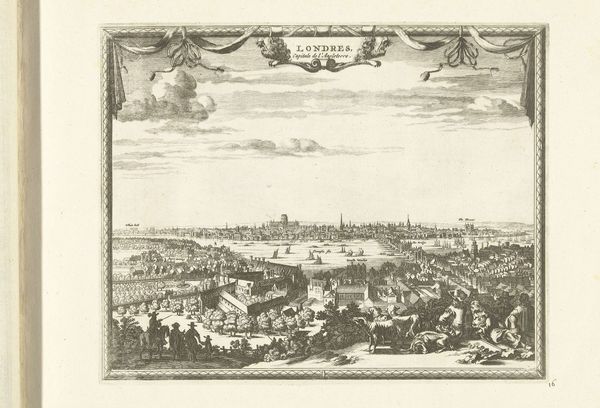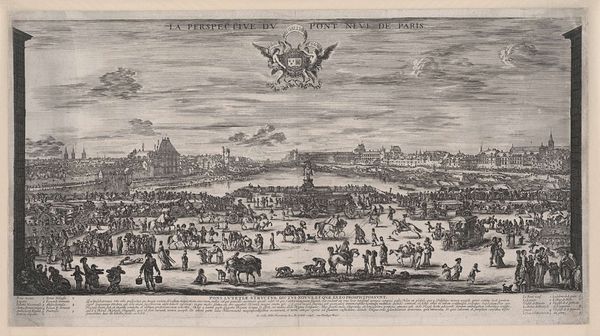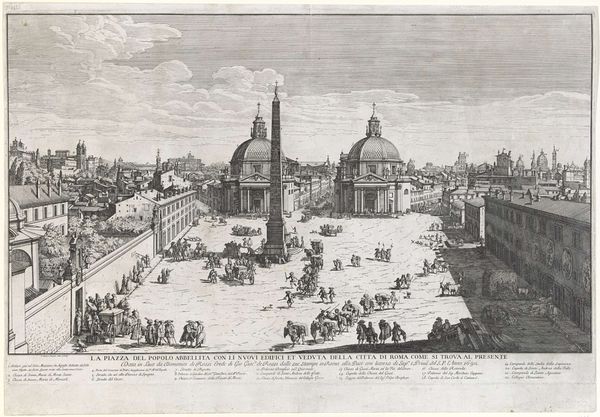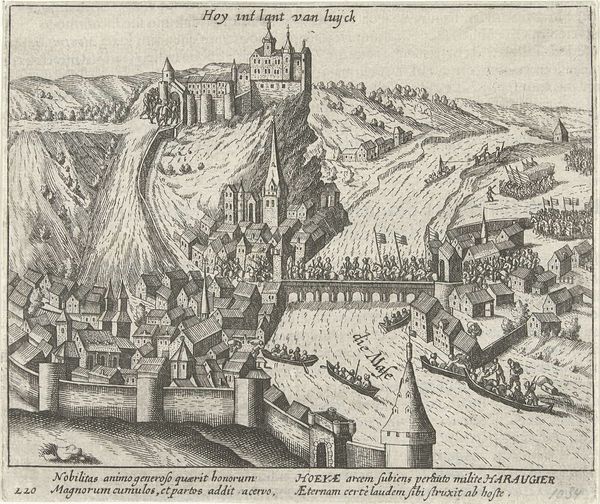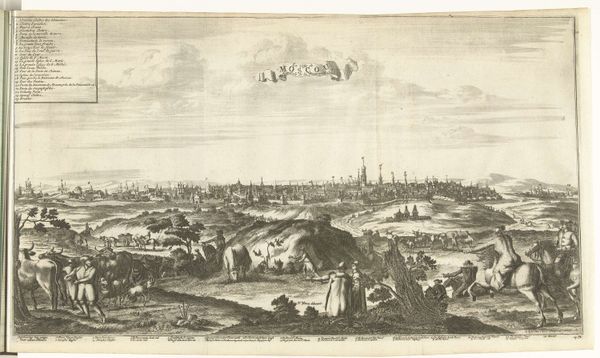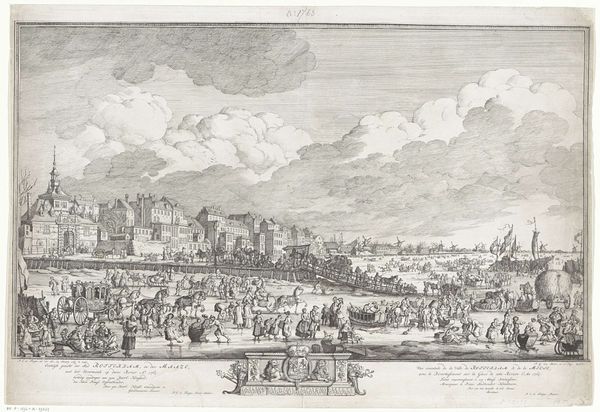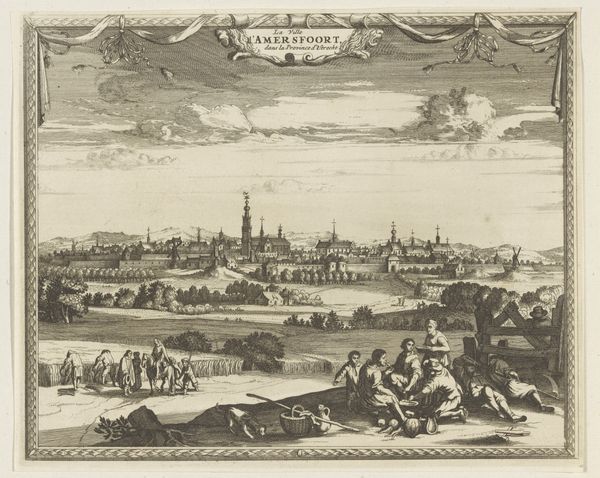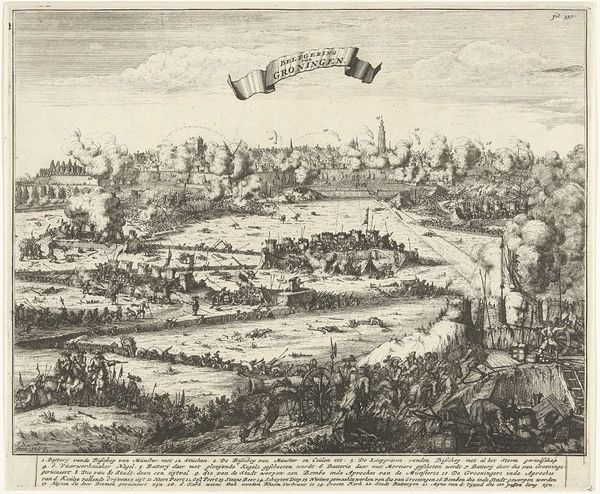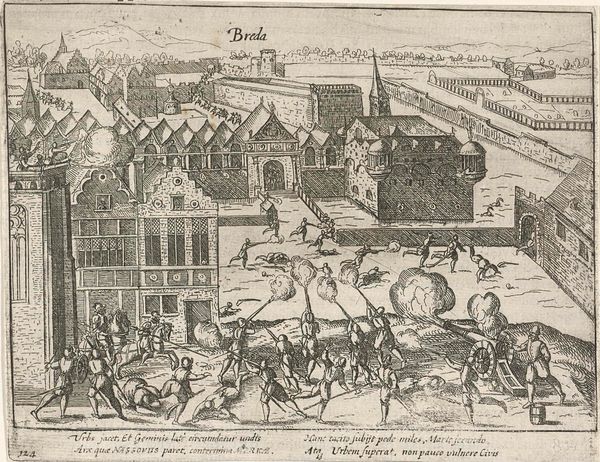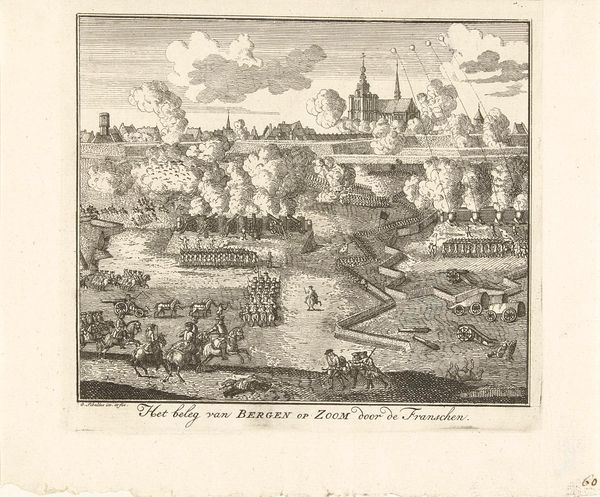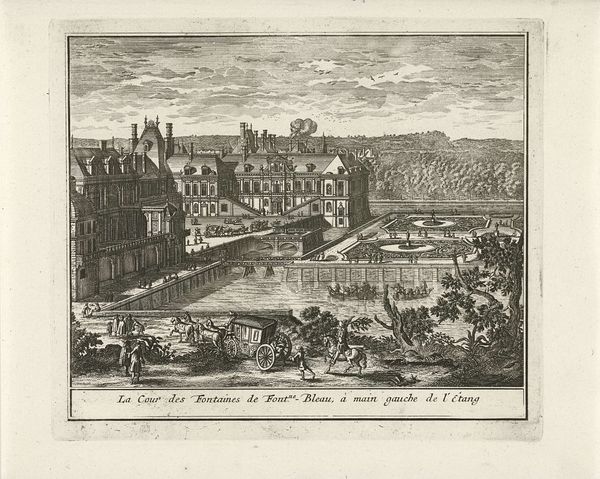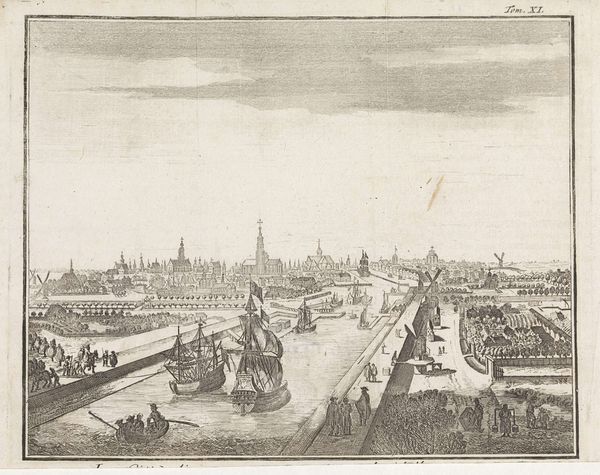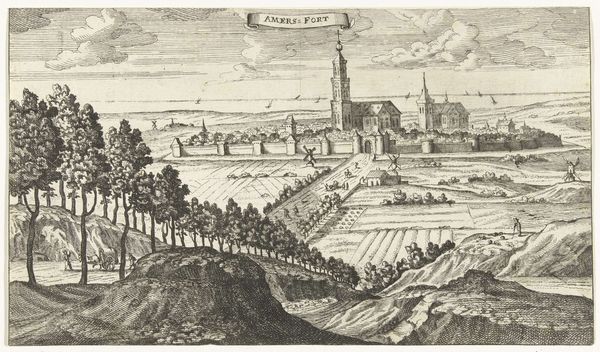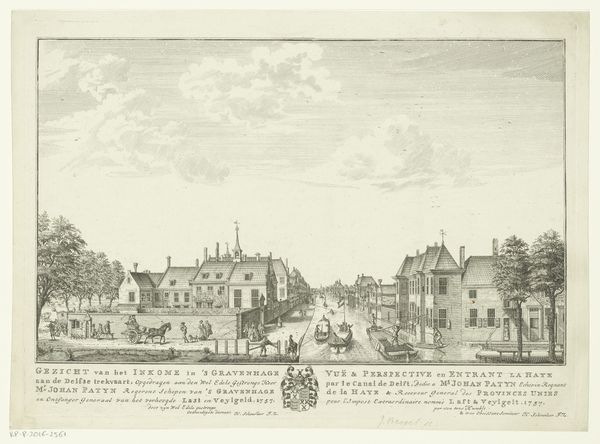
drawing, print, ink, engraving
#
pen and ink
#
drawing
#
baroque
# print
#
ink
#
cityscape
#
engraving
Dimensions: width 483 mm, height 358 mm
Copyright: Rijks Museum: Open Domain
This is Lievin Cruyl’s view of the Roman Forum, made sometime between 1664 and 1720. It’s a print, meaning that it was produced using an indirect process. First, the image would have been incised into a metal plate, probably copper. Ink would then be applied to the plate, and wiped away from the surface, remaining only in the incised lines. Finally, paper would be pressed onto the plate, transferring the ink to create the image. Consider how this process, with its reliance on skilled labor, would have affected the print's appearance. The sharp, precise lines, and the intricate details of the architecture and figures, are all a testament to the engraver's expertise. The very act of making a print—a multiple—speaks to the rise of a new kind of economy. So, when we look at this image, let’s not only appreciate the scene, but also consider the labor, the skill, and the economic context that brought it into being. It encourages us to question the hierarchies of art and craft.
Comments
No comments
Be the first to comment and join the conversation on the ultimate creative platform.
